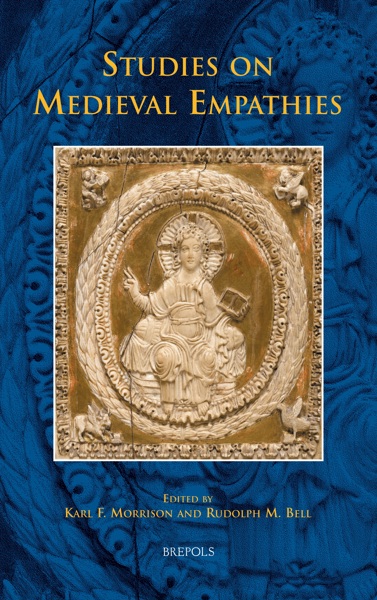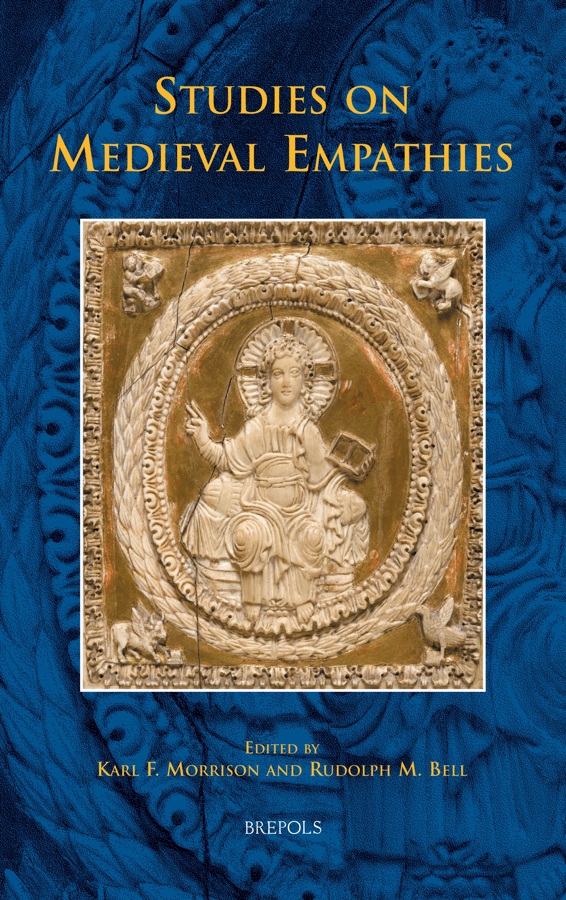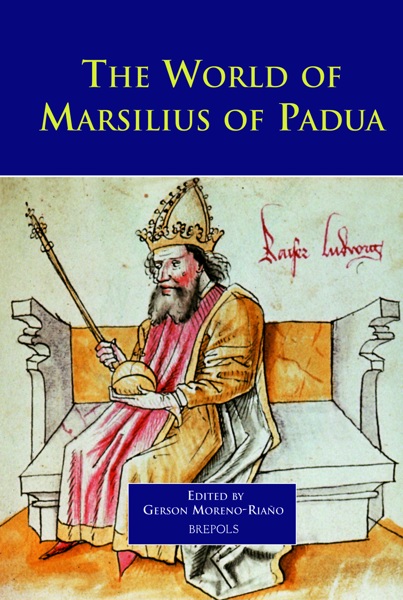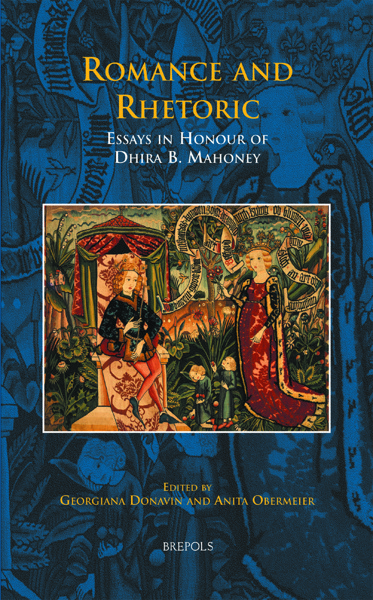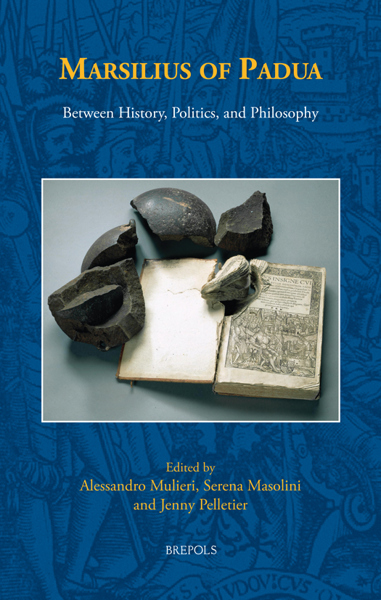
Studies on Medieval Empathies
Karl F. Morrison, Rudolph M. Bell (eds)
- Pages: 352 p.
- Size:156 x 234 mm
- Illustrations:2 b/w, 4 col.
- Language(s):English, Latin
- Publication Year:2013
- € 110,00 EXCL. VAT RETAIL PRICE
- ISBN: 978-2-503-53031-4
- Hardback
- Available
- € 110,00 EXCL. VAT RETAIL PRICE
- ISBN: 978-2-503-54010-8
- E-book
- Available
Cross-disciplinary essays on empathy and creative imagination in the medieval Europe.
"Insgesamt bietet der Sammelband ein breites Spektrum an Studien zu Über- und Bearbeitungsintentionen hagiographischer Werke, zur Suche christlicher Mystiker nach der Nähe Gottes und zu mitfühlenden christlichen Blicken auf andere Religionen."
Christoph Mauntel, in: Sehepunkte, 13 (2013), Nr. 10 [15.10.2013], www.sehepunkte.de/2013/10/21708.html)
"Rarely does one find such a strong collection of essays. Each re- envisions a particular medieval concept, genre, character, or text through an historical application of the idea of empathy."
Lauren Mancia (City University of New York) in: The Medieval Review 14.03.11
"This rich volume will undoubtedly stimulate further interest in the study of empathy as the History of Emotions continues to engross scholars."
Kimberley-Joy Knight in: Parergon, 31.2, 2014, p. 197-198
"(...) what abounds in these pages is imagination, originality and resourcefulness. (...) this is a rich and rewarding volume on a topic of vital interest to humanity."
in: Oxford University Press Journals, Forum for Modern Langauge Studies, 51.2, April 2015, p. 236-237
Empathy is a deep feeling or intuition for kinship transcending self-preoccupied individuality. This book is about empathy in the Middle Ages, before it had a name.The authors begin by tracing the origins of empathy in pre-Christian Antiquity and early Christianity, especially in mysteries of divine justice, by which the good often suffered and the wicked prospered and, as with surgical healing, compassion was manifested by inflicting pain. The authors also explore many facets of empathy’s development in the Latin West, criss-crossing the artificial borders of academic departments to reveal interlocking connections that give emotional power to images, whether verbal, pictorial, or performative. In a powerful multi-disciplinary collaboration, they identify conditions and limits of empathy, and areas in which the dynamic between insiders and outsiders forced subversive explorations of what it meant to be human.
The doctrine of Christ as mediator of divine love dominated medieval thought about empathy as a human instinct. Taken together, like magnetic poles, two pictures in this book represent that mediation in action. The cover illustration, a mid-ninth-century ivory plaque from Carolingian Gaul, depicts Christ, the Divine Word, Love incarnate, glorified, enthroned, and adored by angels as creator, judge, and teacher. The second, Plate 1, from the same period and region, represents the act that sealed the mediation of divine love to humanity: Christ the man, tortured and dying for love.
Illustrations
Preface — RUDOLPH M. BELL
Biographical Context — Karl F. Morrison
A Chronological Bibliography of Karl F. Morrison’s Published Works
Framing the Subject: Humanity and the Wounds of Love — Karl F. Morrison
Part I. Empathy before the Word?
Mutatio sensus: Poetics of Holiness and Healing in Paulinus of Périgueux’s Life of Saint Martin — Giselle de Nie
Reconstructing Sanctity and Refiguring Saints in Early Medieval Gaul — Constance B. Bouchard
Anselm and Praying with the Saints — Rachel Fulton Brown
Part II. Performing Empathy: Learning by Practice
Lupus, or the Wolf in the Library: New Commentary, Edition, and Translation of Lupus of Ferrieres, Epistola 1 — Michael I. Allen
A Sanctifying Serpent: Crucifix as Cure — Herbert L. Kessler
Part III. Assimilations of Empathy into Theology
Indwelling: A Meditation on Empathy, Pregnancy, and the Virgin Mary — Barbara Newman
Love: Active, Contemplative, Essential — Bernard McGinn
Ramon Lull’s Book of the Gentile and the Three Sages: Empathy or Apology? — Marcia L. Colish
Part IV. Humanism and Humanity:
Testing the Limits of Empathy. Hell and Punishment, Pain, and Salvation in Augustine and his Commentator Juan Luis Vives — Sabine MacCormack †
Rome and the Romans in the Medieval Mind: Empathy and Antipathy — Thomas F. X. Noble
Empathy for the Oppressor — Richard Kieckhefer
Index
